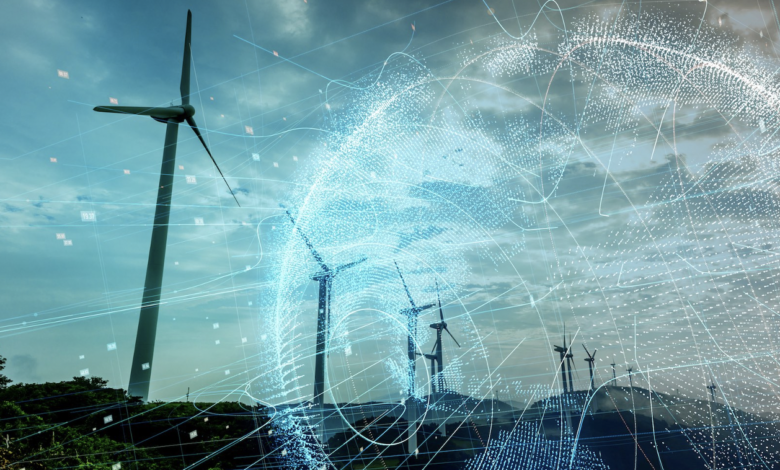
Government policies during the pandemic have significantly altered patterns of energy demand across the world, with international borders closing and the imposition of national lockdowns changing consumption levels and leading to a reduction in global carbon emissions. However, the respite afforded to our environment during this time is far from permanent. As vaccine programs begin to rollout worldwide, and trade and travel begin to re-open, we must identify more long-term sustainable solutions for our energy systems.
Artificial intelligence (AI) can be a powerful force in the energy sector and can complement human efforts to optimise the industry and lessen its impact on the environment. Data is recognised as the new global currency, and AI’s ability to process the vast amount of information and data gives us a unique insight into how we can accelerate our climate change strategy and catalyse positive growth.
Increasing efficiency and providing predictability to renewable energy
Access to energy is at the heart of development, and renewable sources will play a significant role in broadening universal access to modern energy in years to come. However, the renewable energy sector is still held back by unpredictable weather patterns and varying climates. Indeed, as the energy industry looks to incorporate additional renewable sources, accurate weather predictions and power generation forecasts are becoming more critical to maintain system reliability.
This is where AI proves its value. Increasingly, companies have been able to mitigate this risk by deploying AI to forecast sunshine and wind levels and resulting electricity generation. Google’s DeepMind was one of the first to pioneer this technology, announcing in 2019 that it could calculate wind power output 36 hours ahead of actual generation.
Since then, we have seen a proliferation of different initiatives. For instance, IBM has launched a program for the US Department of Energy’s SunShot Initiative, combining predictive weather models, years of historical weather information, real-time data sets from weather stations, along with sensor networks and cloud information extracted from satellite imagery. The initiative has reported accuracy improvements in solar forecasting of over 30%, resulting in significant cost reduction.
By eradicating the unreliability of renewables and reinforcing the security of supply, AI will only serve to increase the value and investment in renewable sources and increase their inclusion in the energy mix.
Driving e-mobility and autonomous travel
A specific and increasingly utilised application of AI in the energy industry is the integration of electric mobility. The Electric Vehicle (EV) sector was on the rise before the emergence of COVID-19, but in recent months we’ve seen the market make significant strides in terms of technological innovation, consumer interest, and overall sales. Researchers are moving closer to produce batteries that are safer, recharge faster and more sustainable than the current ones in use. Within the next 5 years, experts are confident that electric vehicles will reach price parity with their fuel-based counterparts, thanks in part to the role that AI is playing.
My VC fund Singulariteam came across StoreDot several years ago whilst on the hunt for revolutionary start-ups contributing to the net-zero economy. Since our initial investment, the company has gone from strength to strength and last week announced the commercial viability of their EV batteries which can fully charge in 5 minutes. StoreDot has been very vocal about the integral role AI has played in accelerating their research and development process and help them achieve such astounding technological innovation. Using AI, battery researchers were able to significantly speed up the exploration and testing of various material formulations that could make up a battery, achieving improvements in a matter of weeks what may have previously taken several years.
For expanding the uptake of EVs, fast-charging batteries are paramount in solving one of the most significant barriers, ‘range anxiety.’ Through fast-tracking development cycles and helping overcome challenges, AI is helping increase the appeal of EVs and further accelerating the EV-revolution.
Building a sustainable future with AI
AI is finding new beneficial applications in more and more sectors every year and provides hope that we can decouple economic growth from escalating carbon emissions and environmental harm. This week, global leaders are convening virtually for the 51st World Economic Forum Meeting in Davos under the theme “The Great Reset”. As a part of this commitment to take concerted action to build the foundations for resilient future, I expect to see technology and AI take centre stage as enabling forces which can unlock new sustainable opportunities and drive efficiency across many of our key sectors. If we are to meet policy commitments to achieve a net-zero future, such as the Paris Agreement, we must utilise the best technologies at our disposal to accelerate our transition to a low-carbon economy.





